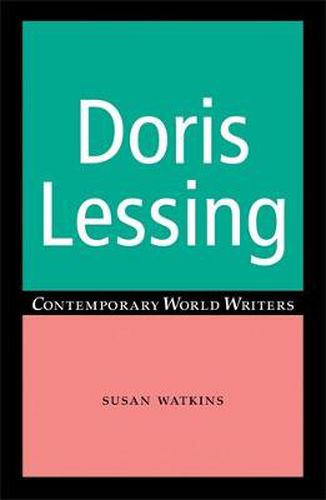Readings Newsletter
Become a Readings Member to make your shopping experience even easier.
Sign in or sign up for free!
You’re not far away from qualifying for FREE standard shipping within Australia
You’ve qualified for FREE standard shipping within Australia
The cart is loading…






This book examines the writing career of the respected and prolific novelist Doris Lessing, who was awarded the Nobel Prize for Literature in 2007 and has recently published what she has announced will be her final novel. This is the first significant book-length critical evaluation in ten years. Doris Lessing’s life and work span some of the key historical changes and movements of the twentieth century, particularly those associated with empire and its aftermath, the second-wave feminist movement and the impact of Marxism. Lessing was the child of white settler parents who left England to begin farming in the British colony of Southern Rhodesia. She came to England at the age of 30 after WWII, has made a number of return visits to Southern Rhodesia / Zimbabwe and has written about her Southern African experiences frequently, including in her Nobel acceptance speech. Whereas earlier assessments have focused on Lessing’s relationship with feminism and the impact of her 1962 novel, The Golden Notebook, this book argues that Lessing’s writing was formed by her experiences of the colonial encounter; it makes use of postcolonial theory and criticism to examine Lessing’s continued interest in ideas of nation, empire, gender and race and the connections between them. The book examines the entire range of her writing, including her most recent fiction and non-fiction, which have been comparatively neglected. The book is aimed at undergraduate and postgraduate students of Doris Lessing’s work as well as the general reader who enjoys her writing.
$9.00 standard shipping within Australia
FREE standard shipping within Australia for orders over $100.00
Express & International shipping calculated at checkout
This book examines the writing career of the respected and prolific novelist Doris Lessing, who was awarded the Nobel Prize for Literature in 2007 and has recently published what she has announced will be her final novel. This is the first significant book-length critical evaluation in ten years. Doris Lessing’s life and work span some of the key historical changes and movements of the twentieth century, particularly those associated with empire and its aftermath, the second-wave feminist movement and the impact of Marxism. Lessing was the child of white settler parents who left England to begin farming in the British colony of Southern Rhodesia. She came to England at the age of 30 after WWII, has made a number of return visits to Southern Rhodesia / Zimbabwe and has written about her Southern African experiences frequently, including in her Nobel acceptance speech. Whereas earlier assessments have focused on Lessing’s relationship with feminism and the impact of her 1962 novel, The Golden Notebook, this book argues that Lessing’s writing was formed by her experiences of the colonial encounter; it makes use of postcolonial theory and criticism to examine Lessing’s continued interest in ideas of nation, empire, gender and race and the connections between them. The book examines the entire range of her writing, including her most recent fiction and non-fiction, which have been comparatively neglected. The book is aimed at undergraduate and postgraduate students of Doris Lessing’s work as well as the general reader who enjoys her writing.